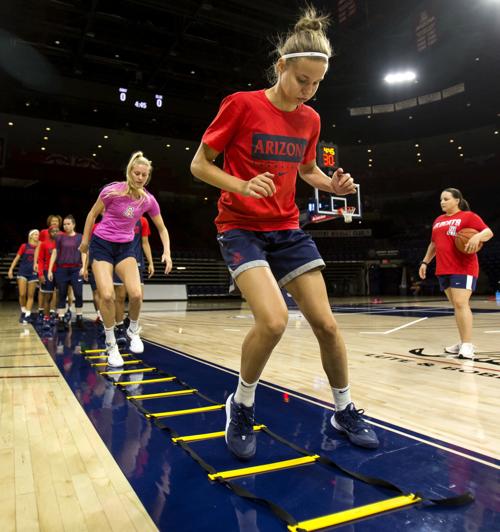Student athletes at Arizona universities and community colleges would be able to profit from their endorsements under the terms of legislation awaiting a vote at the state House.
The proposal by Rep. Anthony Kern, R-Glendale, would override any rule or regulation that prohibits athletes from making money “as a result of the use of the student athlete’s name, image or likeness.” It also would bar athletic associations that govern interscholastic sports from enforcing any similar restriction.
HB 2143 essentially mirrors a measure approved last year for student athletes in California. Kern said that’s part of the reason he wants the bill — to prevent those who would otherwise attend Arizona schools from deciding to go to California where they will be able to profit from their skills.
Kern isn’t the only one with that concern.
Gov. Doug Ducey told Capitol Media Services last year he worries that Arizona universities might find it hard to attract talent if high school athletes can get more lucrative offers to go to college elsewhere.
Central to the issue is whether student athletes should be entitled to earn money, particularly in an age when universities make millions of dollars off their sports programs — and off the work of players whose total compensation is a scholarship. That is at the heart of what is supposed to be “amateur” athletics.
“It does change it,” Kern conceded. But he was unapologetic for that.
“I believe if you have the ability to be on a sports team, whether it be collegiate or professional, you should be able to make a living off what your talent is,” Kern said. “I go for the independent athlete being able to make money on what he or she does.”
There would be no state money involved, with the only compensation coming in the form of those royalties or endorsements. And HB 2143 would prohibit schools from revoking scholarships to students who get these contracts.
But the measure has some limits.
One appears to preclude students from entering into contracts with any firm if that conflicts with agreements that the school already has with another firm that may be a competitor. It also says students have to disclose their contracts to schools in an effort to avoid conflicts.
It also would place some limit on recruiters from universities from other states that may not have a similar law. They would have to inform Arizona high schoolers that they would not be able to profit from any endorsements if they go to school there.
That could keep talented Arizona high school graduates here — assuming they don’t opt to go to California.
“We don’t want California to get our athletes,” Kern said. “So we want to fix it here, fix it now.”
In talking with Capitol Media Services last year, Ducey said student athletes already do get paid — in a way.
“They’re getting a full-ride scholarship,” he said. “So that is compensation to a certain degree.”
Still, he acknowledged, that doesn’t cover other costs.
“I do have concern for students who can’t get back and forth to where they grew up, and that their parents can’t participate,” the governor said.
And then there’s the fact that colleges financially benefit from revenues from sporting events.
“I understand there is an incredible amount of money that’s being generated by these athletes,” he explained. “I do think there probably is an equitable, more equitable way to do it.”
Some of the concern about losing out to other states may take care of itself, without the need for Arizona legislation.
In October — after California Gov. Gavin Newsom signed the California legislation — the NCAA announced its board of governors voted unanimously to permit student athletes to be compensated for the use of their name, image or likeness. But the details have yet to be worked out.
In a prepared statement, the NCAA said it wants the yet-to-be-adopted “modernization” of its rules to include certain provisions, including assurances that student athletes are treated similarly to non-athlete students “unless a compelling reason exists to differentiate.”
The NCAA also wants a clear affirmation that student athletes are not employees of the university and to make it clear that compensation for athletics performance or participation is impermissible.





